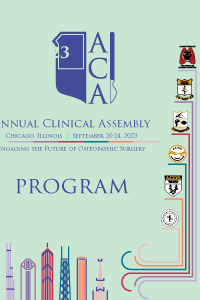Urological Surgery
Case Series of Malignant Priapism Secondary to Urologic and Non-Urologic Penile Metastases
- DD
Daniel C. Drach, DO
Franciscan Health Olympia Fields
Chicago, Illinois, United States
Primary Presenter(s)
Priapism is defined as a persistent penile erection lasting greater than four hours in the absence of sexual arousal. Priapism is further divided into two variants, ischemic and non-ischemic, with many possible etiologies for development of either. Of these etiologies, malignant priapism secondary to penile metastasis is rare, with just over 500 cases of metastatic penile lesions being reported in the literature alone.
Methods or Case Description:
Here we present a 59 year old male with metastatic urothelial cell carcinoma who underwent radical cystoprostatectomy three months prior to diagnosis and a 76 year old male with metastatic colon adenocarcinoma on systemic chemotherapy. The former onset with symptoms of penile pain with persistent partial erection, later undergoing palliative penectomy. The latter presented with an increasingly painful penile skin lesion and unfortunately succumbed to metastatic colon adenocarcinoma prior to undergoing palliative penectomy.
Outcomes:
Malignant priapism portends an ominous prognosis as evidenced by a life expectancy of less than one year. Malignant priapism can be managed by local excision, partial or total penectomy, radiotherapy, chemotherapy, or conservative therapy, with choice of therapy determined by extent of symptoms, metastatic burden, and overall prognosis.
Conclusion:
The cases described in this series illustrate the various presentations of malignant priapism, its poor prognosis, and the palliative considerations of pursuing surgical therapy for symptomatic relief.

